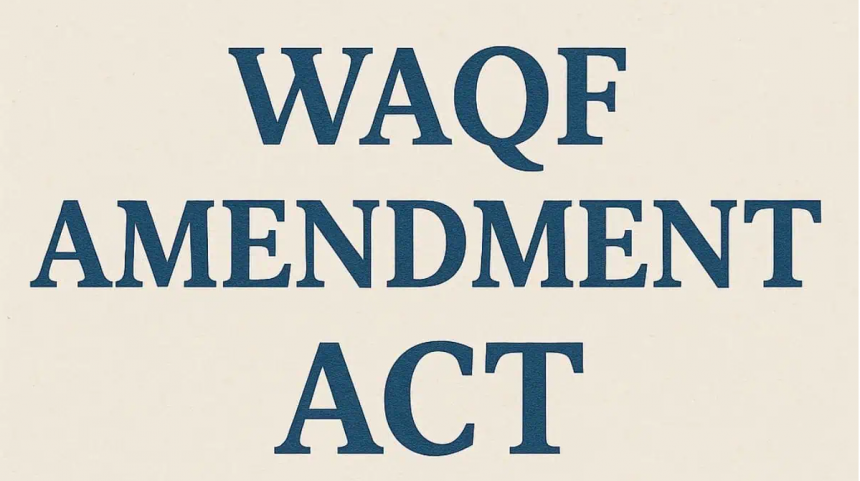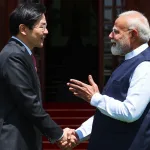Waqf has been very important to society for generations. The concept of Waqf in Islam is the dedication of properties, income, or assets used for worship or charity purposes. These assets generate income that is utilized to do works such as build schools and hospitals, mosques, and provide food and shelter to the disadvantaged. This concept has always been a strong pillar of support to poor and needy communities.
Stacks of this waqf have helped many; Muslim women, in fact, have left out with lots of opportunities unattended and no benefits associated with waqf behind them. Limited participation in the management of waqf and an inadequate resource access were largely responsible for this inequality, which existed long into history and needed urgent reform. Change of this wretched state was brought about by the Waqf (Amendment) Act, 2025 introduced by the government.
This law aims to increase Waqf’s inclusiveness, especially for Muslim women. Many of the new regulations give women their rightful share of property, financial support, and a voice in Waqf affairs. This is a major step forward in the struggle for gender equality in Islamic charity. The most welcome change in the new enactment is the conserving of women inheritance in a special category of Waqf known as Waqf-alal-aulad. This type of Waqf is mostly created for children and descendants’ benefit by the families, but sometimes families would use it to deprive the daughters of their property share by dedicating everything in Waqf.
To curb this misuse, the Act ensures that no property goes into Waqf unless all female heirs are given their entitlement. This provision, found in Section 3A(2), requires that daughters, widows, and mothers receive their share before any property can enter the Waqf. This step delivers justice since Islam clearly gives fixed shares to women in inheritance and stops the family from misusing the Waqf setup for avoiding property for women. From now, every woman will be given her share, before a property is converted into Waqf.
Additionally, the new law extends the scope of Waqf-alal-aulad; hitherto, such a Waqf was employed only on behalf of males. Under Section 3(r) (iv), however, it can also be utilized to benefit orphans, widows, and divorced women. This change has tremendous possibilities as it now tends to offer a safety net to women who face the exigencies of life. After the husband’s death, widows face numerous hardships, often with one or no income or support source. Divorced women and orphans are also subject to economic ambivalence. Not directly neglected by this law, they will be able to draw advantages from Waqf towards meeting their basic needs, education, health, and shelter.
This arrangement stands in line with Islamic principles of justice, mercy, and concern for the weak and needy. The society turns into a more equal, caring society by utilizing Waqf money for their benefit, and the Waqf system becomes a true instrument of social good. Another major reform in the Act is the inclusion of women in Waqf governance. It has now become compulsory that each State Waqf Board and the Central Waqf Council have at least two Muslim women as members, as stated in Sections 14 and 9 respectively.
Women were formerly kept out of decision-making processes regarding Waqf, with men traditionally making the decisions. Thus women’s thoughts and concerns were often bypassed. With more women in their rightful leadership positions today, women’s needs and welfare will likely receive better representation. In deciding the expenditure of Waqf funds and the projects to be supported, women, too, will participate.
The inclusion of women in decision-making is therefore not simply symbolic; there are real transformations. Women leaders can see to it that Waqf funds are put to very noble causes, such as educating girls, maternity care, legal aid, vocational training, and microfinance for women. The presence of women in leadership positions would be an inspiration for other women to come out and become engaged in social and religious issues with confidence, owning the resources that belong to the community. This is an important step toward achieving gender-sensitive governance.
The Act is bent toward promoting Waqf funds for providing scholarships and education to Muslim girls. Education is the strongest weapon of empowerment. When girls are educated, they become independent, confident, and capable of making choices for themselves and their families. Waqf can be a strong source of financing for their dreams.
Apart from education, the law supports healthcare for women in the area of maternity support. Many Muslim women, particularly in the lower strata of society, are deprived of quality medical care. But today, using Waqf money for their benefit, they can get treated, take medicine via medical assistance, and get support during pregnancy and childbirth.
The new law also promotes women to learn skill training and engage in entrepreneurship. Waqf money could also be utilized to set up vocational training centers where women could learn skills like tailoring, beauty services, computer operations, healthcare, or business management.
These skills will get them jobs or help them start small businesses. Waqf will also support micro financing and self-help groups (SHGs) so that women can take small loans and either run shops or offer services to make a living. The money helps them earn some independence and get financially empowered.
The law also allows the use of the Waqf Fund for legal aid relevant to inheritance rights and domestic violence. Many women are unaware of their legal rights or are unable to procure legal assistance. Waqf shall now extend help to them so that they might find justice and protection.
Among the most significant reforms in the Act is the computerization of Waqf records. Waqf properties and transactions are stored and maintained in a computer system all over the country. This digital database will enhance transparency and check corruption.
There had been many instances of Waqf fund misappropriation or illegal takeover of properties. Tracking of funds and properties would be simplified through digital records, allowing the fulfilling of the rights of intended beneficiaries for legitimate uses. This comes in handy for women, who are now able to possess records for proving certain properties for their own benefits. Digital documents will also clear the air.
Women can find out online which Waqf scheme is working for education, health, or assistance-and how to access it. This ultimately brings greater transparency, efficiency, and fairness into the whole system. The Act also advocates the redress of past injustices in which women were excluded from the benefits of Waqf. It, therefore, sets the scene for an equal society by recognizing the wrongs and equipping women with equal rights in decision-making and economic support.
The Act is in keeping with the values of the Indian Constitution, which confers equality and justice to all peoples, and the genuine teachings of Islam, wherein women’s rights are respected and protected. The essence of both laws is reflected therein. Waqf women’s empowerment is not limited to mere assistance; it involves friendliness, dignity, and leadership. It is through this law that women will be made real partners in the Waqf system, which moves them into public view from the margins of community life.
The reforms are then to produce a fully just and inclusive Waqf system working together for the benefit of society for both men and women. A more responsible and just leadership will evolve for the management of religious and charitable resources in the long run. Thereupon, in the hands of these initiatives, Waqf will become an obligation which is not only religiously obligatory but also a modern and effective tool for social welfare, empowerment, and development. It will set a precedent on how to invest community resources in uplifting the weakest sections, especially women and children.
An awareness-building initiative needs to be initiated at this place to develop women’s understanding of their rights under Waqf. And this is where NGOs, schools, and religious leaders come in by championing the message that women find a rightful share and also a voice in Waqf. They should also start preparing training programs for women members of Waqf Boards and SHGs to strengthen their leadership, knowledge of laws, and financial skills. They serve as empowered women to bring a change revolutionizing their own families and communities.
The Waqf (Amendment) Act, 2025, sends strong signals that the government is serious about women development and fairness of religion. This is a good model of how a law can be made to bring about social justice. True empowerment takes place when law, faith, and gender rights come together. It pays complete transformation in Waqf administration because this Act is now securing inheritance rights, providing service to widows and divorced women, upholding economic freedom, and involving women in decision-making.
It is a bold and historic commitment to gender justice in India. In the near future, we hope that many more women will be seen fashioning the destiny of Waqf, steering its resources towards their most effective deployment, and making it into an immensely powerful force for equality and progress within the community.
(Author is Professor and Chairman of Centre for Narendra Modi Studies (CNMS) www.namostudies.com Email: [email protected] )








